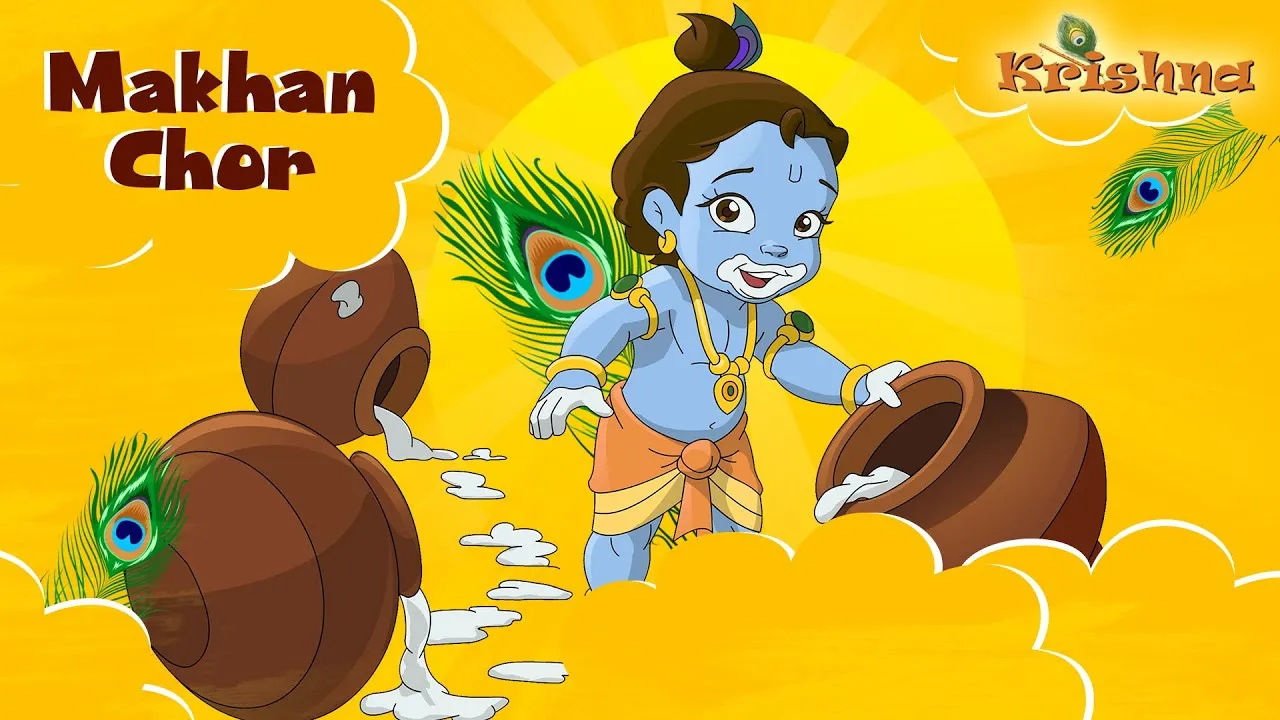
Krishna’s Butter Theft Lila The Deep Secret of Devotion
Introduction
Lord Krishna’s butter theft (Maakhan Chori Lila) is one of the most beloved and playful stories from his childhood. But is it just a tale of mischief, or does it hold a deeper spiritual meaning? Why did Krishna, the Supreme God, steal butter from the homes of Gokul’s villagers? Let’s uncover the hidden secrets of devotion (Bhakti) behind Krishna’s playful Maakhan Chori Lila.
Krishna, the Butter Thief (Maakhan Chor)
As a child in Vrindavan, Krishna was famous for stealing butter from the homes of Gopis (cowherd women). Despite being caught multiple times, he continued his divine mischief, enchanting everyone with his innocence and charm. The Gopis would complain to Yashoda, his mother, but Krishna’s sweet antics always won their hearts.
The Deeper Meaning Behind Krishna’s Butter Theft
While the story is often seen as playful and amusing, it carries profound spiritual significance.
1. Butter Represents Pure Devotion
- Butter is obtained after churning milk, just as pure devotion (Bhakti) is obtained by churning the heart through spiritual practice.
- Krishna steals butter because he seeks true, selfless love from his devotees.
2. Breaking the Pots: Freeing the Soul from Ego
- Krishna breaking the butter pots represents breaking the ego of devotees, allowing their love to flow freely.
- Just as a pot holds butter, our minds hold material attachments—Krishna breaks these attachments to free us from illusion.
3. Why Krishna Chooses the Gopis’ Homes
- The Gopis symbolize unconditional love and surrender to Krishna.
- He steals butter from them because he cannot resist the love of his devotees.
- This teaches that God does not need grand rituals—He is drawn to pure love.
How Krishna’s Butter Lila Inspires Devotees Today
Krishna’s butter theft is not just an ancient tale—it is a living inspiration for devotees worldwide.
- For Indians: It reinforces the tradition of Bhakti (devotion) seen in festivals like Janmashtami.
- For Americans: It introduces the idea that God is personal, loving, and playful, rather than distant and judgmental.
Many people chant Krishna’s names, sing Kirtans, and meditate on his Lila, experiencing deep spiritual joy.
Conclusion
Krishna’s Butter Theft Lila is much more than a childhood prank—it reveals the secret of Bhakti Yoga. Through his mischief, he teaches that pure love is the only thing God desires. If we offer our hearts with the same innocence and devotion as the Gopis, Krishna will surely come and “steal” our worries, leaving only bliss and divine love in return.
FAQs
1. Why did Krishna steal butter when he had plenty at home?
Krishna didn’t steal for hunger—he stole for love, seeking the pure devotion of the Gopis.
2. What does the butter in Krishna’s Lila represent?
It symbolizes pure, selfless love, obtained after churning the heart through devotion.
3. What is the connection between Maakhan Chori and Bhakti Yoga?
Krishna shows that devotion (Bhakti) is the highest path, beyond knowledge and rituals.
4. How can we apply this teaching in modern life?
By surrendering our ego, offering our love to Krishna, and engaging in chanting, Kirtan, and meditation.
5. Why is Krishna called Maakhan Chor?
Because he steals not just butter, but the hearts of his devotees!